May 30, 2025
5 min read
AI can compose music now — even classical music. Have you tried it?
For anyone who loves Mozart-style pieces or wants to add orchestral flair to a project, this might sound like magic.
AI classical music composer is real, this blog can help you start composing your own classical tracks in minutes.

Part 1. Top AI Classical Music Composer to Try
If you're searching for a way to create Mozart-style symphonies, cinematic orchestras, or gentle piano sonatas without touching a single instrument — Musicful is your go-to AI classical music composer.
Musicful is an AI-powered music platform that helps you generate high-quality, royalty-free classical pieces just by typing a few words.
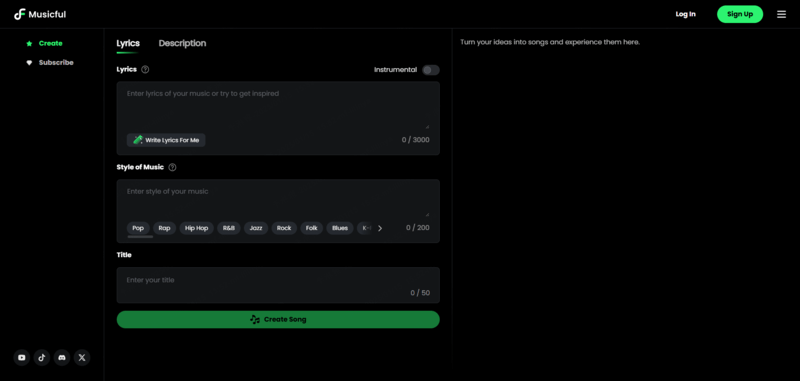
If you want dramatic film scores, elegant chamber music, or peaceful background strings, Musicful transforms your ideas into fully arranged compositions in seconds.
Why Musicful Stands Out for Classical Music Lovers:
1. Perfect for Classical Projects
You'll often hear classical music in movies, podcasts, art galleries, and even meditation apps. Musicful makes it easy to compose music that fits those moods — no training needed.
2. Orchestral Flair, No Composer Needed
From sweeping strings to layered brass sections, you can create full orchestral tracks with realistic instruments and dynamics.
3. Get Inspired with Community Tracks
Browse users' AI-composed classical music, remix popular styles, or simply listen for inspiration before composing your own.
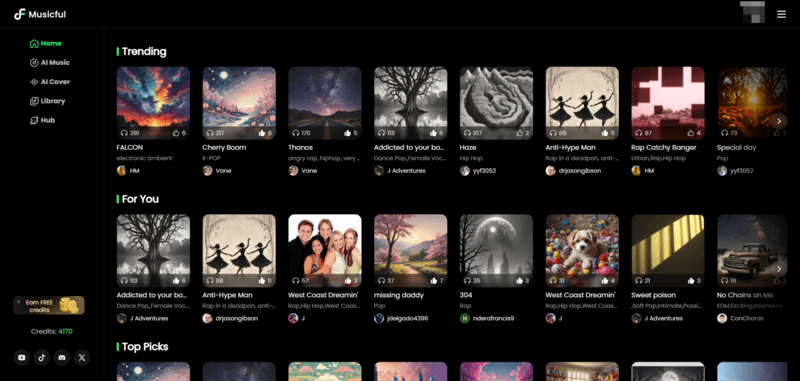
4. Two AI Engines, One Powerful Output
● V1.0: Great for fast, simple songs
● V1.5: Supports up to 8-minute tracks with up to 5000 characters of lyrics — ideal for long-form symphonies or layered classical arrangements.
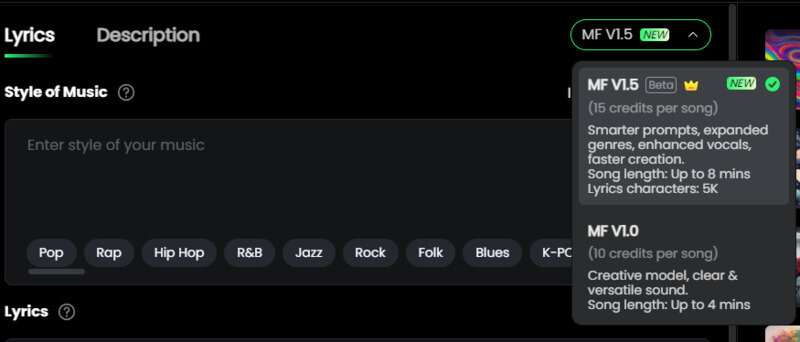
Part 2. How to Make Classical Music with AI(Step-by-Step)
Creating classical music used to take years of training. Now, you can compose elegant symphonies or cinematic scores in just a few clicks with Musicful.
Here are 2 simple ways to make classical music using Musicful:
Method 1: Use Lyrics Mode to Compose Structured Classical Music
Step 1: Choose Your Musical Style Using Tags
Use relevant tags under Style of Music:
● Genre: Classical, orchestral, baroque, romantic, minimalist
● Mood: Dramatic, peaceful, majestic, nostalgic
● BPM: 60–90 for classical
● Instruments: Strings, piano, brass, woodwinds, harp
● Vocals: Optional – add operatic or soprano styles
● Style reference: e.g., Mozart, Chopin, Hans Zimmer
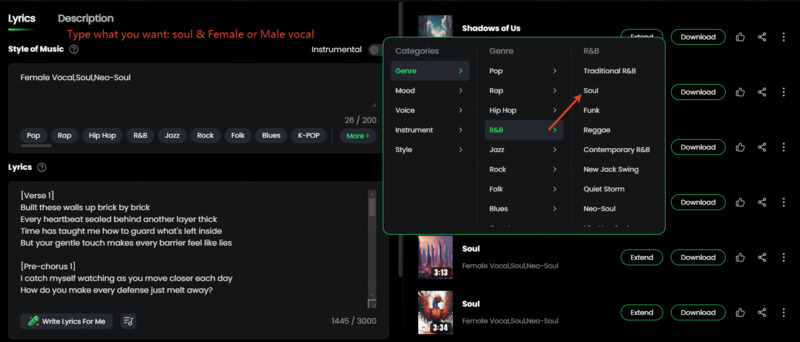
Step 2: Add lyrics
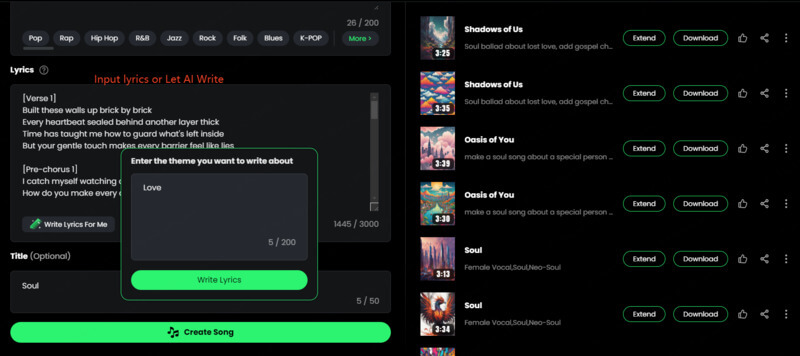
Step 3: Name your track
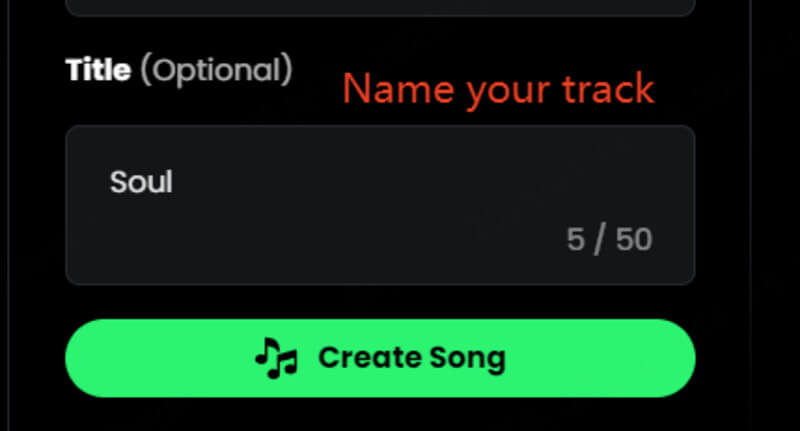
Method 2: Use Description Mode for Freestyle Sound Design
Step 1: Write a description of your Classical Music
Examples:
● "A slow, romantic classical piece with soft piano and violins, inspired by Chopin."
● "Orchestral intro with rising strings and emotional climax, perfect for film scores."
● "Baroque-style harpsichord melody with chamber string quartet, elegant and vintage."
Step 2: Generate your track
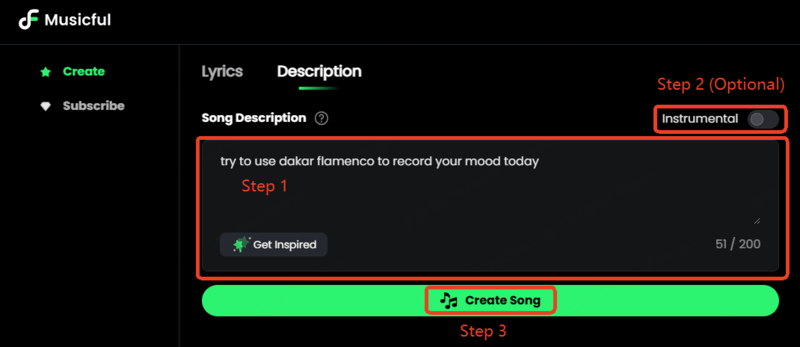
Part 3. Key Features of Classical Music
Before you start creating, it's important to understand what makes classical music… classical.
This timeless genre follows some well-known traits that help AI generate the right structure, emotion, and instrumentation.
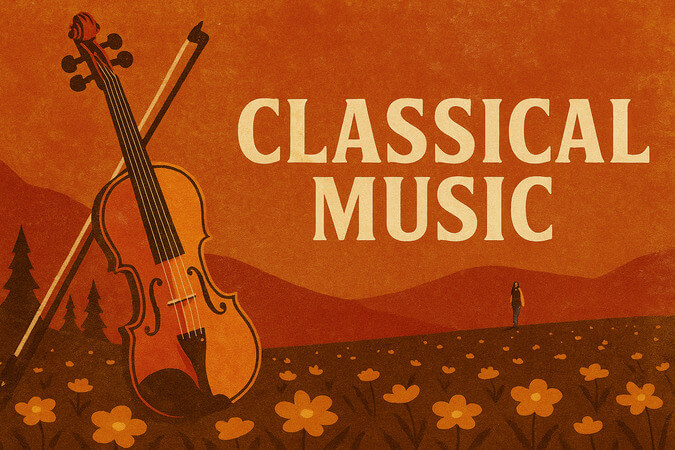
Key Features
⭐ Structured composition: Often follows clear forms like sonata, rondo, or symphony formats.
⭐ Emotional storytelling: Classical music uses melodies and harmonies to express tension, resolution, and mood shifts — all without lyrics.
⭐ Instrumental focus: Most classical pieces rely on acoustic instruments: strings, woodwinds, brass, and piano.
⭐ Dynamic contrast: Soft versus loud, fast versus slow — classical music often shifts dramatically in volume and tempo.
⭐ Historical influence: Styles vary by period(Baroque, Romantic, Modern), but all emphasise musical craftsmanship and complexity.
Understanding these basics can help you write better prompts or pick the right tags in Musicful.
Part 4. FAQs - AI Classical Music Composer
1. I have no music experience. Can I still use Musicful?
Absolutely. Musicful is designed for beginners. Just enter a prompt or lyrics — no music theory needed.
2. Can AI generate piano music?
Yes! AI can create beautiful solo piano compositions or include piano in full orchestral arrangements.
3. Can AI compose a symphony?
Yes. With long-form support(up to 8 minutes), Musicful's V1.5 model can generate multi-section symphonic works.
4. Is AI-generated music legal to use?
Original music created using your own prompts is royalty-free and safe for personal use.
5. Can I try Musicful for free?
Yes. You can explore the platform and generate AI music for free before upgrading for pro features.
Conclusion
AI classical music composer like Musicful make it easy for anyone to create elegant, orchestral tracks — no music theory, no instruments, no experience needed.
If you haven't tried it yet, now's the perfect time. It's fast, fun, and completely online.
TRY MUSICFUL FOR FREE


